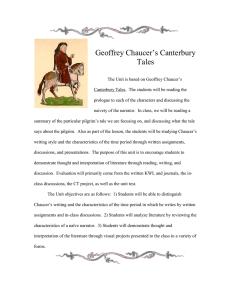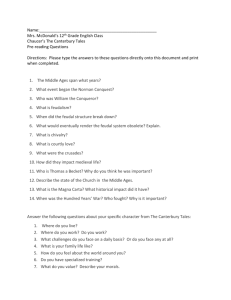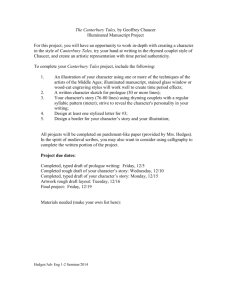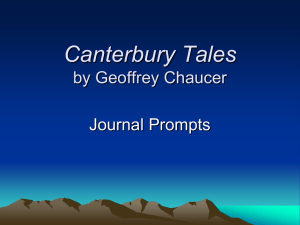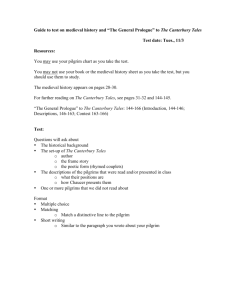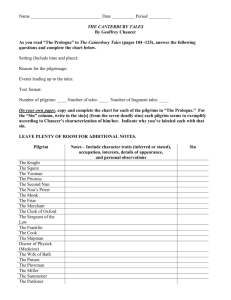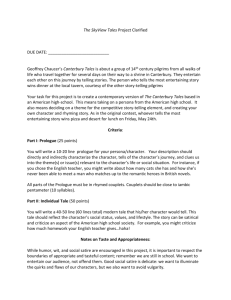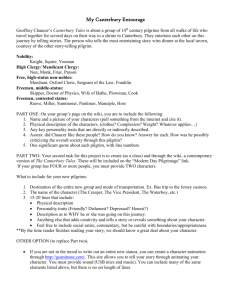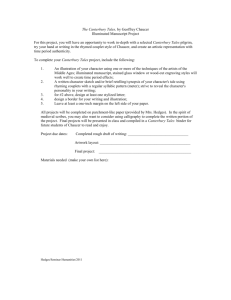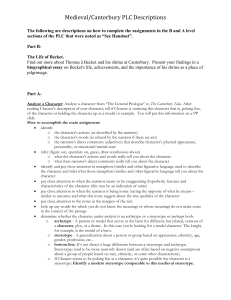Main Ideas for Canterbury Tales
advertisement
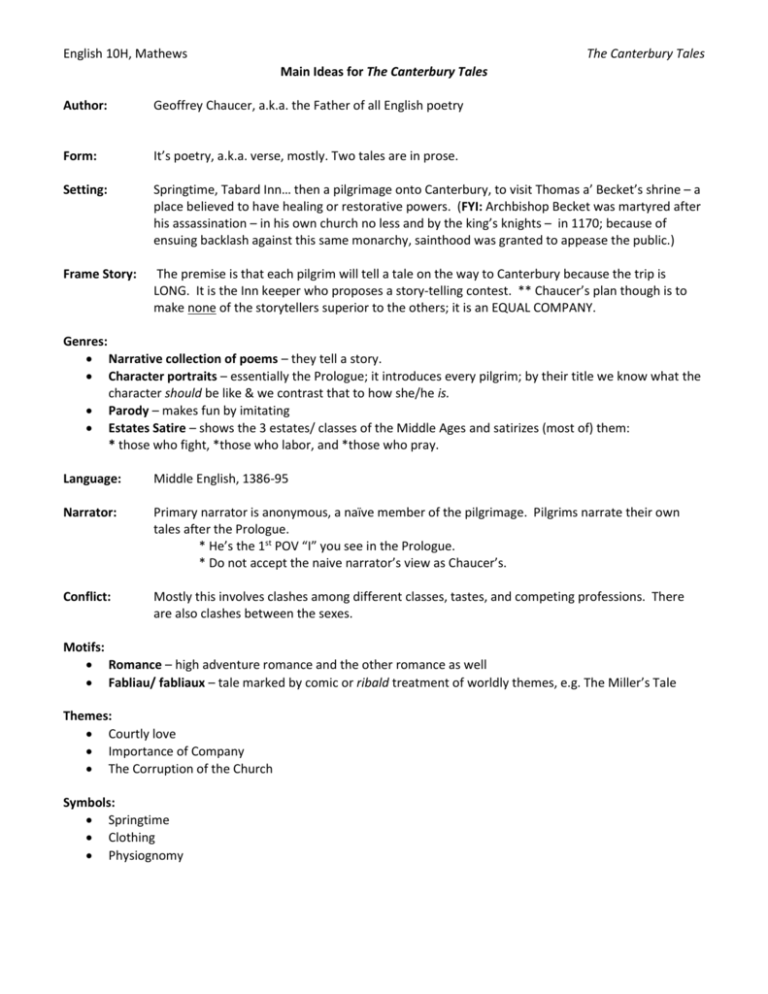
English 10H, Mathews The Canterbury Tales Main Ideas for The Canterbury Tales Author: Geoffrey Chaucer, a.k.a. the Father of all English poetry Form: It’s poetry, a.k.a. verse, mostly. Two tales are in prose. Setting: Springtime, Tabard Inn… then a pilgrimage onto Canterbury, to visit Thomas a’ Becket’s shrine – a place believed to have healing or restorative powers. (FYI: Archbishop Becket was martyred after his assassination – in his own church no less and by the king’s knights – in 1170; because of ensuing backlash against this same monarchy, sainthood was granted to appease the public.) Frame Story: The premise is that each pilgrim will tell a tale on the way to Canterbury because the trip is LONG. It is the Inn keeper who proposes a story-telling contest. ** Chaucer’s plan though is to make none of the storytellers superior to the others; it is an EQUAL COMPANY. Genres: Narrative collection of poems – they tell a story. Character portraits – essentially the Prologue; it introduces every pilgrim; by their title we know what the character should be like & we contrast that to how she/he is. Parody – makes fun by imitating Estates Satire – shows the 3 estates/ classes of the Middle Ages and satirizes (most of) them: * those who fight, *those who labor, and *those who pray. Language: Middle English, 1386-95 Narrator: Primary narrator is anonymous, a naïve member of the pilgrimage. Pilgrims narrate their own tales after the Prologue. * He’s the 1st POV “I” you see in the Prologue. * Do not accept the naive narrator’s view as Chaucer’s. Conflict: Mostly this involves clashes among different classes, tastes, and competing professions. There are also clashes between the sexes. Motifs: Romance – high adventure romance and the other romance as well Fabliau/ fabliaux – tale marked by comic or ribald treatment of worldly themes, e.g. The Miller’s Tale Themes: Courtly love Importance of Company The Corruption of the Church Symbols: Springtime Clothing Physiognomy

